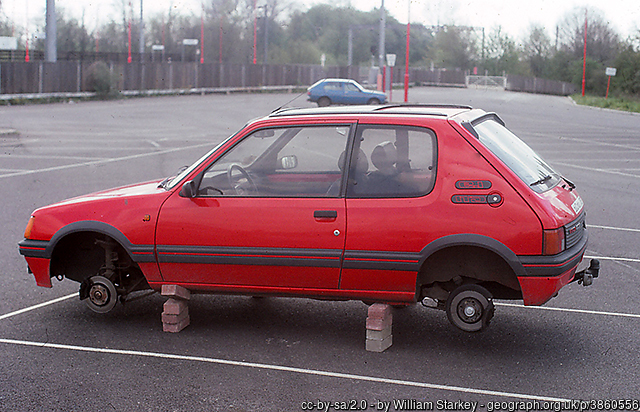
A couple of weeks ago, I responded to this post on LinkedIn in which Nick, the original poster, asked, as so many technical writers before him:
Does anyone have data from their industry, demonstrating why it’s important to have good documentation? I’m struggling to convince (some) product managers why we need to invest in this.
Thanks in advance!
Nick received lots of well-intentioned suggestions that could provide data and reason to support a response to the product manager. And then, I replied:
That’s not how documentation works.
Good documentation is what customers expect. Not having good docs, however, will cost you.
Maybe say, “let’s take the docs offline for a week and see what happens?” At the end of the week, you’ll have the data you need.
While my reply contains a dash of snark, it’s really the only way I could think of at the moment to shock the discussion back to something productive.
This type of prove your worth to me question isn’t really looking for data. It’s usually more to establish some sort of dominance or just to pick a fight (however politely). In the worst-case scenario, they’re looking for positions (other than theirs) to cut.
I find this question to be annoying, not just because I’ve been hearing this for decades, but because it presumes that documentation doesn’t have any worth until you prove it. The same question could be asked of the product manager: What data is there to demonstrate why we need good product management?
So, can we please move past the “why are you even here?” challenge? Can we assume, for the moment at least, that we’re all professionals and we’re all here to deliver the best value to the customer for the company?
We have product managers to help guide product development to deliver the product that customers want with the quality they expect. Likewise, we have documentation managers and technical writers to deliver the information that customers expect (or demand) to exist when they go looking for it.
I don’t know what industry Nick is in, but it’s the rare exception where customers of any product don’t expect good documentation. The world we live in has the expectation that the information we want will be there when and where we want it.
That information doesn’t write itself.
Why does this question keep coming up?
About 25 years ago technical documentation became something that no longer appeared as a separate line item on an invoice. This was also about the time it stopped being routinely printed. (Coincidence?) Ever since then, it’s been seen as a cost center. The easiest way to improve a cost center is to reduce its cost—ideally to zero. So, I’ve been hearing the “what’s documentation’s value,” “what’s documentation’s ROI,” and similar questions ever since.
One reason this question keeps getting asked, and why tech writers always seem to be caught off guard by it, is that our tech comm sages haven’t, after over 25 years, produced a satisfactory response. That’s just disappointing and we can do better. Our tech comm sages need to provide our new tech writers with an acceptable response to that question (however unfair and antagonistic that type of question might seem to be).
I’d be interested in what other suggest, but I’ll start with some possible responses…
Passive/aggressive
If you suspect some hostile intent, this has the benefit of putting the requester on the spot (the spot onto which they’re trying to put you) and causing them to stop and think.
Product manager (PM): What’s the value of documentation?
Technical writer (TW): I’m glad you’re interested in our technical writing. I’m not really sure, now that you ask. Can you tell me why we have product managers? How do you prove your value?
Maybe it’ll run them off. Maybe they’ll have some constructive suggestions to help you analyze it.
We’re all trying to make things better for the customers.
Five whys
Because this is a rather unusual question, ask them why. Then, ask them why again, four more times.
The five whys is a technique used to get to the underlying cause of the question. I don’t like doing this because it’s really hard to not sound like a criminal prosecutor.
But, the chat might go something like this:
Product manager (PM): What’s the value of documentation?
Technical writer (TW): Why?
(PM): We spend a lot of money on it.
(TW): Why?
(PM): Customers complain when we don’t have good documentation.
(TW): Why?
(PM): I suppose they were expecting good documentation.
(TW): Why?
(PM): I don’t know. That’s just how they are.
(TW): Why?
(PM): I don’t have time for this. Just give me a simple answer.
(TW): You just told me that customers expect good documentation, so we’ll just keep giving our customers what they seem to value.
The answer I’d give at the end of a long day
This is where I must have been when I responded to Nick. It’s easy to imagine a conversation going something like this.
Product manager (PM): What’s the value of good technical documentation?
Technical writer (TW): I’m busy.
(PM): I need to know.
(TW): When do you need to know?
(PM): Next week.
(TW): OK. I’ll take our help site offline and start measuring the change in customer service workload. Next week, that difference will tell us both what the value of our technical documentation is. I’m sort of curious now.
(PM): You can’t do that! Our customers will freak out! Documentation is in our contract with them.
(TW): Great! So you already know the value of documentation: it prevents customers from freaking out and breach of contract lawsuits. I’m glad I could help. Can I get back to work, now?
So, what IS the value?
While the previous approaches might provide some entertainment, they don’t really answer the question.
The thing is, as I mentioned in my response to Nick, customers today expect to be able to look things up on the web, or many cases, on their phone. That’s just the expectation. Not delivering the content customers expect to find about a product is like delivering a new car without any wheels and tires.
I wonder how often it’s suggested to remove the tires and wheels from a car to save cost?
In any case, we technical writers still need a snappier comeback to the question. If only to say that it’s to keep our products from looking like the car in the photo to customers.
